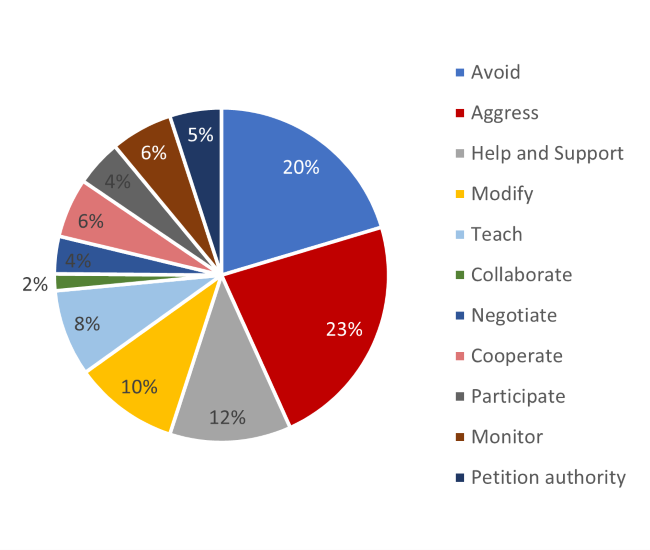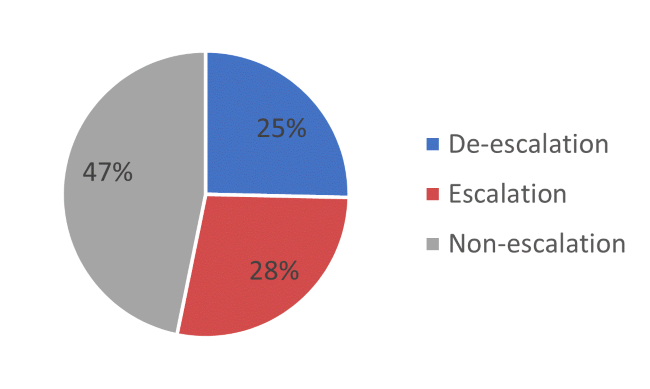Civilian Agency in Post-Accord Societies: Northern Ireland
The 1998 Good Friday Agreement is now over 25 years old. In the time since then, Northern Ireland has witnessed many changes and much peacebuilding intervention. While there have been many positive changes, the fundamentals of the conflict remain unchanged, with the two main groups foreseeing very different constitutional outcomes. In this context, people have to get on with their lives. Largely they do this in ways that are non-escalatory.
Strategies
 Figure 1: Strategies reported in interviews in Northern Ireland
Figure 1: Strategies reported in interviews in Northern Ireland
Impact
 Figure 2. Intended impact of strategies reported in interviews in Northern Ireland
Figure 2. Intended impact of strategies reported in interviews in Northern Ireland
Key Findings
- During our research in four areas of Northern Ireland, we recorded hundreds of individual actions and forms of communication related to the conflict as people get on with their everyday lives. These reveal that people draw on a diverse repertoire of strategies ranging from avoidance and monitoring a situation to showing or communicating aggression (Figure 1). Importantly, the intended impact of most strategies is non-escalatory. (Figure 2).
- Avoidance of people, situations and places is a key way of life. Part of this is to avoid situations that might be awkward or potentially violent, but it also reflects geographies of convenience. Many people do not need to mix with members of the other community because their retail, educational and cultural needs are met within their own community.
- There is more intergroup mixing, and knowledge of the other community, in rural areas.
- Individuals and groups invest significant energy in monitoring their surroundings. Although violence has largely ceased, there is widespread anticipation that violence could return. This raises fundamental questions about the nature of the peace agreement and what has followed.
- While there is much non-escalatory and de-escalatory behaviour, there is still significant escalatory behaviour. This might be because the risks associated with such escalation are relatively low (especially in comparison with similar research in Colombia and Lebanon).
